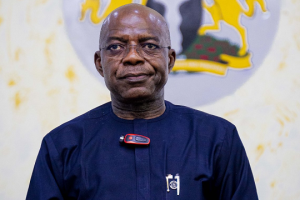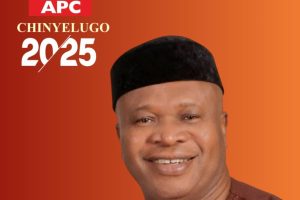
President Bola Tinubu says his vision for Nigeria centres on transforming the country into a nation of builders and ensuring prosperity for future generations.
Tinubu while speaking at the 55th International Conference, Exhibition and Emerald Anniversary of the Chartered Institute of Personnel Management of Nigeria, with the theme, ‘Sustainable HR, Business and National Development’ held on Tuesday, reiterated that poverty is not only shameful but it is unacceptable under his leadership.
The President insisted that his vision for the Nigerian workforce ensures every citizen is gainfully employed and can care for themselves and their family.
Minister of State for Labour and Employment, Nkiru Onyejiocha, who represented Tinubu at the event, noted that in the face of global challenges, the current administration was committed to steering Nigeria towards self-reliance and reducing dependency on others.
He said, “I am reminded of the crucial role that human resources play in shaping the destiny of our nation. Our collective vision must transcend the ordinary, and today, I wish to share with you a vision that centres on transforming Nigeria into a nation of creators and builders, ensuring a prosperous Nigeria for us and future generations to come.
“As I have said repeatedly, poverty is not a shameful thing – but it is an unacceptable thing. Therefore, my vision for the Nigerian workforce is one where every citizen who wishes to be, is gainfully employed and able to take care of themselves and their family. Together, keying into this vision, we will banish poverty.
“We envision an unprecedented level of industrial activity, marked by the establishment of unique industrial hubs tailored to the strengths of each region in our great nation.
“Our commitment to ending poverty is deeply intertwined with our focus on economic growth and job creation. We recognise that sustainable development can only be achieved by fostering an environment where job opportunities abound, ensuring food security, and eradicating poverty.”
Commenting on the roles of HR practitioners, Tinubu said it was crucial in moulding and effectively managing people to become catalysts for economic resurgence in an increasingly competitive and changing world.
On his part, the President and Chairman of Council, CIPM, Olusegun Mojeed, noted that now more than ever, HR was responsible for shaping a progressive organisation and nation.
He said, “Sustainable people practice is a strong catalyst for cultural, national, and infrastructural development, among others. Talent supply will play a major role in creating and shaping the conditions in which organisations and nations will operate.”





